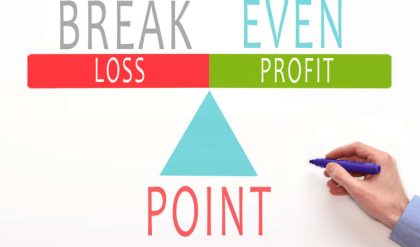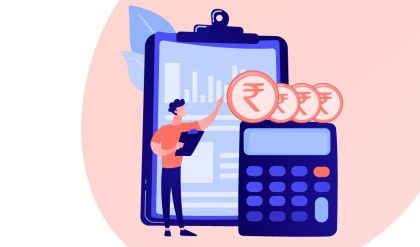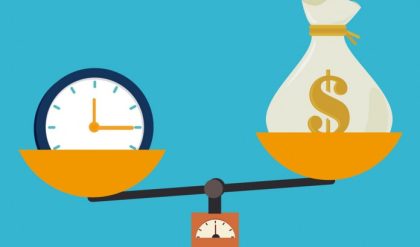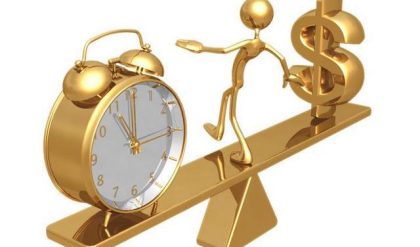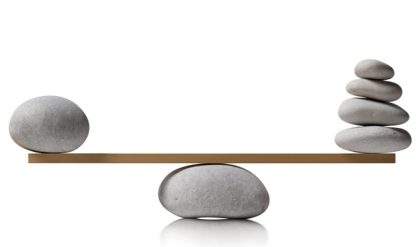Definitions and Basics
● Robert Frank on Inequality , podcast on EconTalk. November 15, 2010
● Robert Frank of Cornell University talks with EconTalk host Russ Roberts about inequality. Is there a role for public policy in mitigating income inequality? Is such intervention justified or effective? The conversation delves into both the philosophical and empirical evidence behind differing answers to these questions. Ultimately, Frank argues for a steeply rising tax rate on consumption that would reduce disparities in consumption. This is a lively back-and-forth about a very timely topic.
● Bruce Meyer on the Middle Class, Poverty, and Inequality, podcast on EconTalk. October 3, 2011
● Bruce Meyer of the University of Chicago talks with EconTalk host Russ Roberts about the middle class, poverty, and inequality. Many economists and pundits argue that the middle class has made little or no economic progress over the last 30 years, that poverty rates are stagnant or rising, and that inequality has increased dramatically. Meyer, drawing on his research over the last ten years, argues that these conclusions are either false or misleading. He argues that standard measures of economic progress and inequality are based on faulty inflation data or a misplaced focus on pre-tax income instead of post-tax income or consumption.
● Kaplan on the Inequality and the Top 1%, podcast on EconTalk. November 7, 2011
● Steven Kaplan of the University of Chicago talks with EconTalk host Russ Roberts about the richest Americans and income inequality. Drawing on work with Joshua Rauh, Kaplan talks about the composition of the richest 1% and 1/10 of 1%–what proportions come from the financial sector, CEOs from non-financial corporations, athletes, lawyers and so on. Then he discusses how the incomes of these different groups have changed over time. Kaplan argues that these groups have increased their incomes by similar proportions, suggesting that a failure of corporate governance is not the explanation of rising CEO pay. The discussion closes with a discussion of the financial crisis and the compensation in the financial sector.
● Progressive Taxes, from the Concise Encyclopedia of Economics
● If, as Oliver Wendell Holmes once said, taxes are the price we pay for civilized society, then the progressivity of taxes largely determines how that price varies among individuals. A progressive tax structure is one in which an individual or family’s tax liability as a fraction of income rises with income. If, for example, taxes for a family with an income of $20,000 are 20 percent of income and taxes for a family with an income of $200,000 are 30 percent of income, then the tax structure over that range of incomes is progressive. One tax structure is more progressive than another if its average tax rate rises more rapidly with income….
● Social Security, from the Concise Encyclopedia of Economics
● Social Security, or, to be precise, Old Age, Survivors and Disability Insurance (OASDI), is the U.S. government program that pays benefits to workers after retirement, to spouses and children of deceased workers, and to workers who become disabled before they retire….
In the News and Examples
● Bernstein on Inequality, podcast on EconTalk. Oct. 6, 2008
● William Bernstein, author of A Splendid Exchange, talks with EconTalk host Russ Roberts about inequality. Bernstein is worried about it; Roberts is not. Bernstein argues that inequality is damaging to the health of low-status people and hurts the health of the economy. Roberts challenges Bernstein’s empirical evidence. It’s a lively conversation on the economics of status, productivity and the progressivity of taxes.
● Stiglitz on Inequality. EconTalk Podcast.
● Nobel Laureate Joseph Stiglitz of Columbia University talks with EconTalk host Russ Roberts about the ideas in his recent book, The Price of Inequality. Stiglitz argues that the American economy is dysfunctional, benefitting only those at the very top while the bulk of the workforce sees little or no gain in their standard of living over recent decades. Stiglitz blames this result on deregulation and the political power of the financial sector and others at the top. He wants an increase in regulation and the role of government in the economy and a more transparent Federal Reserve Bank that he blames for coddling the financial sector. The conversation also includes a discussion of the Keynesian multiplier.
● Are the Poor Getting Poorer?, a LearnLiberty video.
● People often say that “the rich are getting richer while the poor are getting poorer.” Economics professor Steve Horwitz explains why in the United States, this characterization is largely a myth. Real income levels of the poorest 20 percent of Americans have actually risen over time. Further, the individual households that comprise the bottom income bracket do not stay the same. The majority of Americans in the poorest 20 percent become wealthier over the course of their lives.
● Burkhauser on the Middle Class, podcast on EconTalk. April 12, 2012
● Richard Burkhauser of Cornell University talks with EconTalk host Russ Roberts about the state of the middle class. Drawing on recently published papers, Burkhauser shows that changes in the standard of living of the middle class and other parts of the income distribution are extremely sensitive to various assumptions about how income is defined as well as whether you look at tax units or households. He shows that under one set of assumptions, there has been no change in median income, but under a different and equally reasonable set of assumptions, median income has grown 36%. Burkhauser explains how different assumptions can lead to such different results and argues that the assumptions that lead to the larger growth figure are more appropriate for capturing what has happened over the last 40 years than those that suggest stagnation.
● Acemoglu on Inequality and the Financial Crisis, podcast on EconTalk. February 21, 2012
● Daron Acemoglu of MIT talks with EconTalk host Russ Roberts about the role income inequality may have played in creating the financial crisis. Raghuram Rajan in his book, Fault Lines, argues that growing income inequality in the last part of the 20th century created a political demand for redistribution and various policy changes. This in turn created the push for higher home ownership rates and led to the distortions of the housing market that in turn led to excessive risk-taking in the financial market. Acemoglu suggests a simpler story where the financial sector through its political influence distorted the rules of the game, benefiting executives in the industry, which in turn led to outsized rewards and ultimate instability in the financial industry. The conversation discusses ways of distinguishing between these two arguments and what might be done to change the incentives of politicians.
● Should Government Reduce Inequality in Life Spans?, by Dwight R. Lee. January 5, 2009. Library of Economics and Liberty.
● The concern that so many people have over large inequality of income is puzzling for two reasons. First, some of those most adamantly in favor of reducing income inequality using government taxation and transfers also dismiss the importance of additional income for most people. They tell us that money doesn’t buy happiness once we have such basics as adequate housing, food, clothing and access to health care (which is different than having health insurance). Because the vast majority of Americans have these basics, the focus on income inequality does not make much sense.
● The second reason this focus is puzzling is that there is a far more important inequality: that is the inequality in life expectancy. Precisely because income in excess of a fairly modest income (modest, at least, by U.S. standards) is not very important, what matters more for happiness is the amount of time we have on this earth to be happy. Few would deny that a few additional years of life would be more precious to most Americans than the extra money they might receive from government transfers. If inequality in things that matter is important, there is a basic inequality that the worriers about inequality should be paying attention to: the inequality in life expectancy between men and women.
● Incomes: Equalizing or Churning?, by Anthony de Jasay. September 5, 2008. Library of Economics and Liberty.
● Preoccupation with the distribution of incomes has become more intense lately. Anger at the rich because the poor are poor fuels it, and so does the idea, inherited from “defunct economists” served in the public subconscious, that if total income is unequally distributed, some mythical entity they are pleased to call “total utility” will be smaller than it need be, and could be expanded by policies that equalised real incomes by acting on both the revenue and the expenditure side of the budget.
● Pettit on the Prison Population, Survey Data and African-American Progress. EconTalk Podcast.
● Becky Pettit of the University of Washington and author of Invisible Men talks with EconTalk host Russ Roberts about the growth of the prison population in the United States in recent decades. Pettit describes the magnitude of the increase particularly among demographic groups. She then discusses the implications of this increase for interpreting social statistics. Because the prison population isn’t included in the main government surveys used by social scientists, data drawn from those surveys can be misleading as to what is actually happening among demographic groups, particularly the African-American population.
A Little History: Primary Sources and References
● Rawls and Nozick on Liberty & Equality. A LearnLiberty video. September 16, 2011.
● Prof. James Otteson discusses the philosophers John Rawls and Robert Nozick, and their different views on liberty and equality. Rawls considered equality to be the moral benchmark for all social and political institutions, and felt that any deviation from equality must be specially justified. Nozick, on the other hand, considered liberty to be the more important value. He pointed out that there is an inevitable tension between liberty and equality: to maintain equal distribution in society, a central planner would have to constantly interfere with people’s personal choices. Alternatively, if a central planner left people free to make independent choices, any patterns of equality would ultimately be disrupted.
● Schmidtz on Rawls, Nozick, and Justice, podcast on EconTalk. May 7, 2012.
● David Schmidtz of the University of Arizona talks with EconTalk host Russ Roberts about the work of John Rawls and Robert Nozick. The conversation covers the basic ideas of Rawls and Nozick on inequality and justice and the appropriate role of the state in taxation and property rights….
Advanced Resources
● Richard Epstein on Happiness, Inequality, and Envy, podcast on EconTalk. November 3, 2008.
● Richard Epstein of the University of Chicago talks with EconTalk host Russ Roberts about the relationship between happiness and wealth, the effects of inequality on happiness, and the economics of envy and altruism. He also applies the theory of evolution to explain some of the findings of the happiness literature.
● Economic Growth. Part I. Economic Growth and True Inequality and Economic Growth. Part II. Irreducible Inequality, by John V.C. Nye. Jan. 28 and Apr. 1, 2002, respectively. Library of Economics and Liberty.
● Two-part article on inequality and economic growth.
